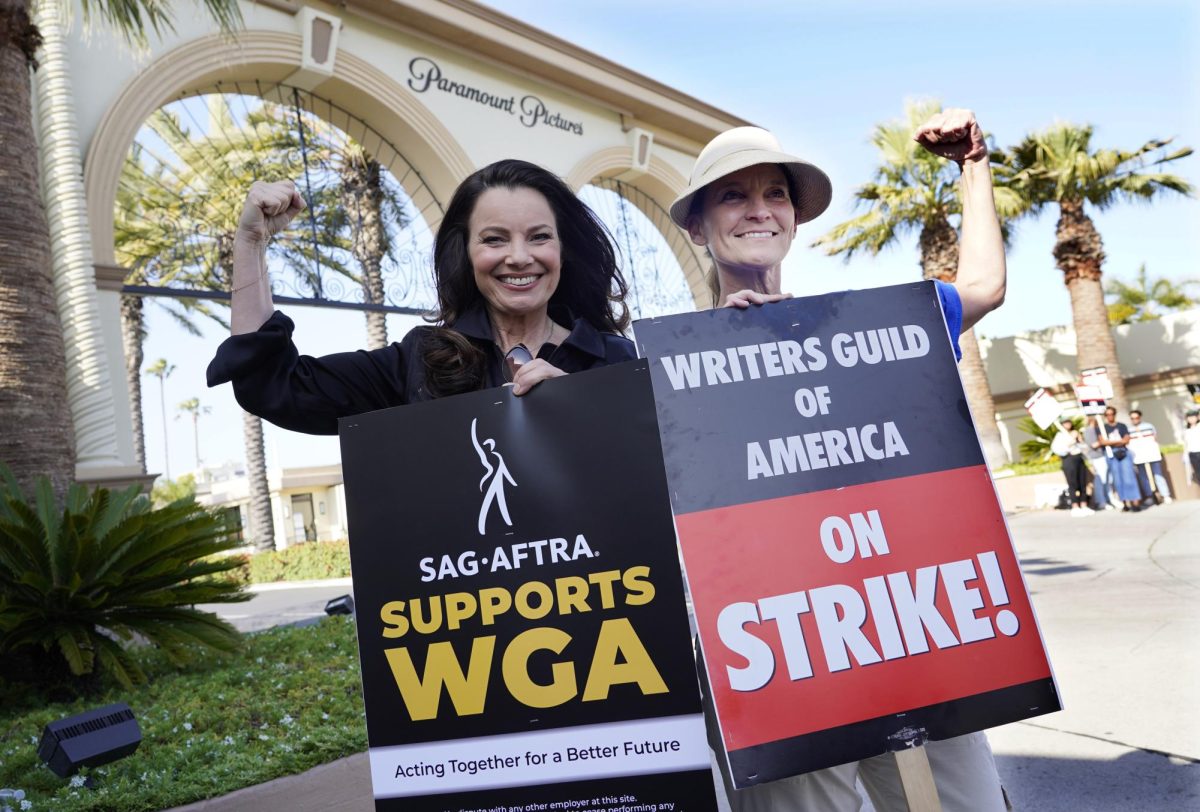The historic SAG-AFTRA strike has reached a resolution as of Nov. 9 that, among other things, agreed upon increased wages, regulations around AI use and conditions for showing work on streaming platforms.
“First of all, my opinions are [that] it was good that there was a strike,” film and media studies professor Andrew Smith said. “I think that what the strike did was make more visible the labor difficulties that the industry was sort of counting on and exploiting … it’s been a long time coming.”
Mary Jo Lodge, head of the theater department, who works primarily on the stage through her own acting and teaching experience, had similar sentiments to Smith.
“I think during the strike, one thing that became apparent was just how many people and how many jobs the industry of making film and television supports and how many people were struggling that may not even benefit directly from the strike … so I think it’s great that it’s settled,” Lodge said.
Both professors agree that this is just the start of many changes that need to occur. They are hopeful that the strike, along with the writers strike and future actions will, create more positive working environments for students planning on entering the field.
“When you do this, you see the techniques are exposed,” Smith said. “Studio [executives] are literally saying these people will crumble, these people will cave because they can’t make their rent and … ultimately, you just have to make that stand. I do worry about the overarching sort of instability of the industry, but I think we have to take this as a win.”
“I think the actors got a lot of important and well-deserved things in the deal that they finally agreed to,” Lodge said. “I would say for me, the biggest things that jump out relate to money, to a fair financial deal, to the use of AI, which I think is probably the big one that everybody’s concerned about and then also the use of intimacy coordinators.”
Sam Cohen ‘25, a film and media studies student and the movie columnist for The Lafayette finds hope in the camaraderie that the actors and writers showed throughout the strike.
“I think it just shows me both with SAG-AFTRA and the WGA that … there’s really a sense of community,” Cohen said. “They stood by each other. They went on strike with each other. They waited. It just shows me that they’re willing to stand for what they deserve, and I think that’s impressive.”
The deals struck by SAG-AFTRA, WGA and major movie studios are scheduled to last three years, after which both writers and actors will have to renegotiate.
In the meantime, both actors and writers can return to work, and viewers are anxiously awaiting the return of films and television series that are starting to resume production.
“You know, it gets the business back going,” Cohen said. “I’ve been reading that companies are scrambling to get crews and other effects companies to work on their projects … it’s nice to see that it’s a start.”



























































































































